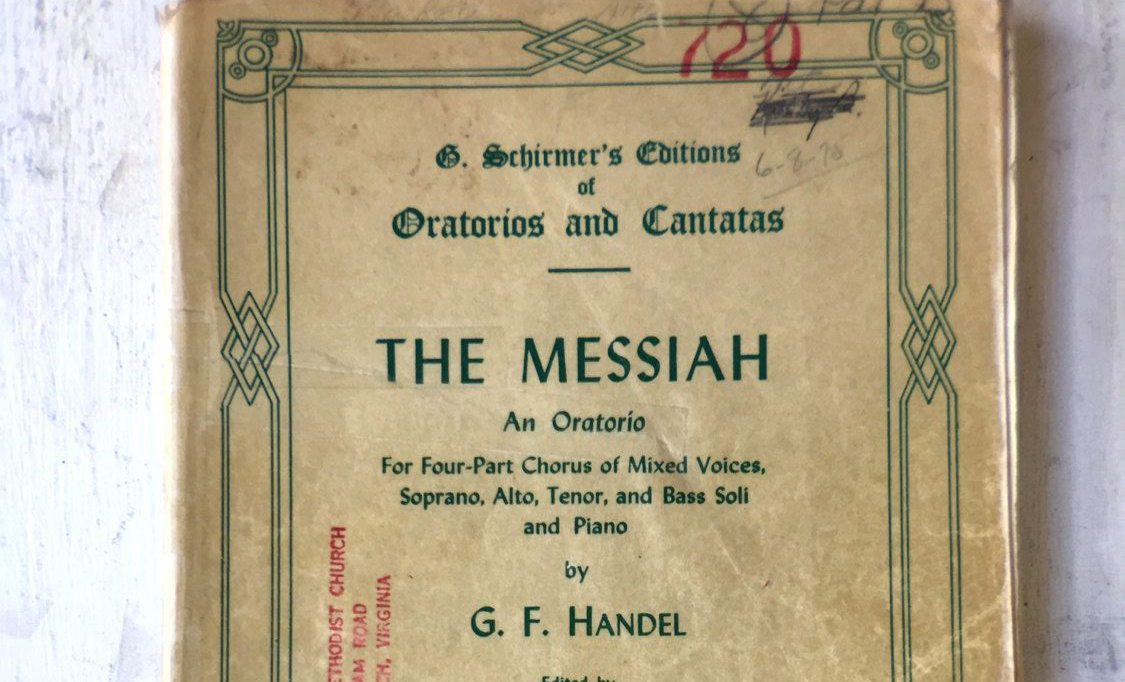These verses are so familiar they are easy to read without hearing what they say. But pay attention:
In the same region, shepherds were staying out in the fields and keeping watch at night over their flock. Then an angel of the Lord stood before them, and the glory of the Lord shone around them, and they were terrified. But the angel said to them, “Don’t be afraid, for look, I proclaim to you good news of great joy that will be for all the people: Today in the city of David a Savior was born for you, who is the Messiah, the Lord.” (Luke 2:8-11)
Advent is a season for slowing down as we meditate on the meaning of Jesus’ arrival. Here, the shepherds find joy.
Don’t be afraid. It’s the most frequent command in the Bible. Maybe it’s because we’re prone to fear. Maybe it’s because we’re prone to forget, because we live in a dangerous world filled with dangerous things. Or because it’s the right response to the good news. Most likely, it’s all of these.
Don’t be afraid. It’s the command of Christmas. Two thousand years ago, some shepherds were out in the fields at night, likely counting sheep and trying not to fall asleep. Without warning, the angel of the Lord stood before them. They were terrified. But the angel commanded them, “Don’t be afraid.”
Don’t be afraid. This command isn’t heavily featured in the Bible by chance. There’s always a “because.” God doesn’t give commands without purpose. So, the angel said, “Don’t be afraid, for look …” God doesn’t expect us to grit our teeth and push down fear. For look, he shows us why we need not be afraid. He wants us to see the end of fear.
Don’t be afraid. With this news is great joy. The angel had come to deliver a message — a good message — not to bring harm or punishment to the shepherds. In the same way, the message of Christmas does not destroy us; it destroys our fear. The shepherds likely feared for their lives when the angel of the Lord appeared to them. Imagine their surprise upon learning that they would not die but were invited to visit the newborn king. With the coming of Christ came great joy — not depression, not punishment, not destruction, but long-awaited relief and happiness. A Savior has been born, the Messiah, the King promised to David. And he is the Lord — God in the flesh, come to dwell with us. His name is Jesus, for he will save his people from their sins. Jesus is the end of fear. Jesus himself is the good news. And Jesus is great joy.
Don’t be afraid. Who is this command to? Jesus is joy for all people. “What kind of people?” you might ask. The Gospel of Luke and see the many Jesus ministers to, both men and women, the privileged and the poor: Jesus is joy for the barren, the old, the hungry, the widow, the poor, the captives, the blind, the oppressed, the demon-possessed, the sick, the laborer, the leper, the lame, the tax collector, the sinner, the tormented, the weeping, the hated, the excluded, the insulted, the slandered, the believing, the bereaved, the afflicted, the deaf, the dead, the storm-tossed, the naked, the homeless, the frightened parent, the bleeding, the least, the one who asks, the mute, the little, the waiting, the repentant, the disabled, the last, the humble, the uninvited, the lost, the prodigal, the sufferer, the praying, the childlike, the beggar, the repentant, the generous, the betrayed, the fleeing, the alert, the servant, the guilty.
Don’t be afraid. Jesus is joy proclaimed to all, and Jesus is joy proclaimed to you.Jesus is joy proclaimed to all, and Jesus is joy declared to you in the very real fears, distress, and challenges we experience. What objections spring up when you hear “Don’t be afraid?” How does the good news of great joy speak to them?
Don’t be afraid. “But it feels like everything is against me.” He has overcome the world. “But my spouse left me!” He will never leave or forsake you. “But I can’t pay the bills!” Seek his kingdom, and these things will be provided for you. “But they’re lying about me!” If God is for us, who is against us? “But I am dying!” He himself bore our sicknesses. “But I am suffering!” He carried our pains. “But I have a life of rebellion!” He was pierced because of our rebellion. “But I am a prodigious sinner!” He was crushed because of our iniquities. “But I deserve my torment.” The punishment for our peace was on him. “But I have a story of shame!” The one who believes in him will never be put to shame. “But everyone who ever loved me has stopped loving me.” Nothing will be able to separate us from the love of God that is in Christ Jesus our Lord.
Don’t be afraid. The good news of great joy isn’t always the answer we think we want. The Lord remains with us, but the divorce goes through. The Lord provides, but that doesn’t mean the bills get paid. The Lord heals, but we still die. That’s not what we were looking for. But isn’t that the point of the good news of great joy? Who would look for the Messiah in a manger? Who would look for the Messiah on a cross? The news is good, and the joy is great because what God gives us in Jesus is better than what we hoped for — it’s what we need. We fix our joy on what is temporary, but God gives us what is eternal.
Don’t be afraid. Instead, in the words of the carol, repeat the sounding joy. Repeat it when you wake up. Repeat it before you go to sleep. Repeat when you open a gift. Repeat it when you spend your last dollar. Repeat it when you go to work. Repeat it when you lose your job. Repeat it when your child hugs you. Repeat it when your spouse leaves you. Repeat it when the report is clear. Repeat it when the diagnosis is terminal. Repeat it when you obey. Repeat it when you sin. Repeat the sounding joy: “Don’t be afraid, for look, I proclaim to you good news of great joy that will be for all the people: Today in the city of David a Savior was born for you, who is the Messiah, the Lord.”



